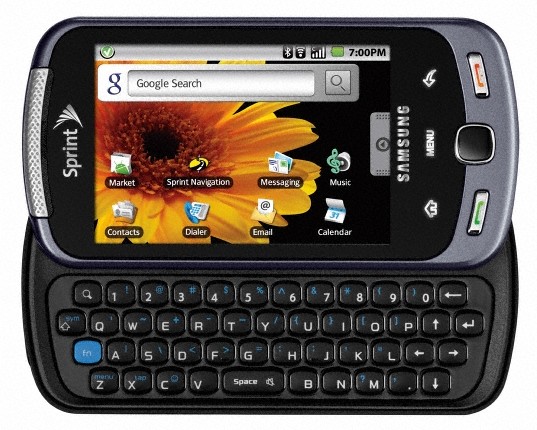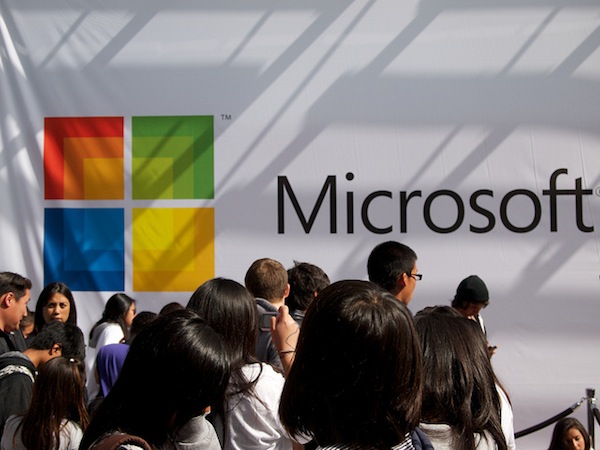
12 people share their iPhone 4 Death Grip stories
Betanews readers have responded to my earlier-in-the day question -- "Are you caught in the iPhone 4 Death Grip?" -- with surprising answers. Some of you are having reception problems, and many others are not. Granted this is an unscientific survey, but several trends are still clear:
1. The reception problems aren't as widespread as blogs and news stories suggest.

Mobile DTV moves forward as D.C. test proves successful
A mobile digital television service test underway in Washington, D.C. is going well, signaling that a more widespread launch of the technology is not too far off. The Open Mobile Video Coalition (OMVC) started the test in May with 23 channels, and so far has received about 2,800 comments on the service.
Included in the test are the major local broadcast networks, several radio station rebroadcasts, and some retransmissions of secondary and tertiary over-the-air digital channels. OMVC is also testing out premium content, and has included several cable stations including Fox News, CNBC, MSNBC, MTV, and E!, among others.

Are you caught in the iPhone 4 Death Grip?
I am. But are you? I'd like to hear from iPhone 4 users about their calling experiences with the so-called "death grip." Please share your experiences in comments or by e-mail (joewilcox at gmail dot com). I'll collect reactions into a separate post. Do yourself a favor and respond. The more feedback Apple and AT&T receive, the better chances death grip can be resolved -- and there are problems. I only personally know about a half-dozen iPhone 4 owners, and all complain of some reception problem or another.
On June 23, I asked: "What's wrong with iPhone 4's antenna?" Only hours after receiving iPhone 4, I observed that the number of bars receded to zero over about 20-30 seconds when holding the device in my left hand. I wrote: "By appearances, the act of holding the phone impares signal strength. I'm not so bothered because I typically use a Bluetooth headset rather than hold a phone. Flat or holstered in a case are the handset's typical positions when used." Whoops, I'm having Bluetooth reception problems, too.

The next 4G phone is a Samsung, and it's Epic
Sprint and Samsung today have unveiled the next 4G WiMAX-capable smartphone, the Samsung Epic 4G. The device follows the impressive (and perpetually sold out) HTC Evo 4G in Sprint's roster of 4G devices, and is immediately differentiated by having a slide-out QWERTY keyboard.
Despite recent Web chatter proclaiming the contrary, keyboards are not dead.

Salesforce strikes back against Microsoft's May patent suit
Last month, Microsoft sued Customer relationship management (CRM) software company Salesforce for nine counts of patent infringement in the District Court in the Western District of Washington.
The complaint appeared to be a defensive maneuver after Salesforce purchased cloud data management provider Jigsaw, a company in which Microsoft had important interests.

The Intel you may have never known: consumer solid state drives
Intel has announced a partnership with Best Buy to bring its line of solid state drives (SSDs) to the consumer market. The drives will be sold at retail in about 800 stores as well as online.
Two drives will be initially available for brick and mortar customers -- a 40GB model which will retail for $129.99, and an 80GB version for $229.99. Best Buy will also sell a 160GB model for $449.99, but it will only be available online, representatives told Betanews.

Hulu subscription service coming to PlayStation Network, says report
While it is no secret that Sony will launch PlayStation Plus next Tuesday --a for-pay tier for the formerly 100% free PlayStation Network online service-- a Bloomerg report yesterday revealed a heretofore unknown partnership between Sony and Hulu may result in a new Hulu video service after the launch of the PlayStation Plus tier.
According to an unnamed source, the PlayStation Network's free tier will include subscription-based access to a Hulu streaming service that makes primetime NBC, Fox, and ABC content available on demand.

Apple and Microsoft stores are the future of technology retailing
People wait for the opening of the fourth Microsoft Store in San Diego
Move over Best Buy and Fry's. Smaller, specialized, tech company shops are the future -- not that this is news to retail experts. It "always has been," said Stephen Baker, "once consumers started driving technology and not enterprise." NPD's vice president of industry analysis should know; he sat in the front-row watching Gateway shutter stores about the time Apple opened them (2001) through the demise of Circuit City and CompUSA and broadening of Internet retail sales.

Which drew the bigger crowd in San Diego? Microsoft Store opening or Apple iPhone 4 launch?
Thousands of people swarm San Diego's Fashion Valley Mall Apple Store for iPhone 4
Apple and Microsoft faced off in the same San Diego mall today. Microsoft opened its fourth retail store. Apple launched iPhone 4. Both events drew long lines of fans. But the Apple line was ginormous by comparison, and the two groups were demographically quite different. To my bitter disappointment, Fashion Valley Mall management kept the Apple and Microsoft store lines far apart. I secretly hoped for a mixing of the two groups. Fanboy conflict would have made good news, and the combustion might have set off a mushroom cloud marking where San Diego once was.

Bitbop aims to take on FloTV, Sling with Blackberry exclusive mobile entertainment service
News Corp-owned subsidiary Fox Mobile Group launched late Wednesday its fee-based Bitbop mobile entertainment service, aiming to compete with the likes of Sling and FloTV in offering entertainment on the go.
Bitbop has launched exclusively on the BlackBerry platform, although company representatives told BetaNews that versions of the application will be made available for the iPhone and Android platforms in the near future. The company declined to offer any specific time frame.

Smartphones with HD video cams won't cut into pocket camcorder sales for 3-4 years
The ability to record 720p HD video has become a standard feature in the big flagship smartphones this year. The Google Nexus One, Apple iPhone 4, Motorola Droid X, HTC EVO 4G, and Nokia N8, for example, can all capture HD video.
For companies involved in the pocket camcorder business like Cisco, Kodak, and Creative, this convergence poses a threat to sales of their small, ultraportable cameras. But according to a report from Futuresource Consulting today, the consumer camcorder business has not yet begun to feel these effects.

Headphone company Koss sues former VP and accounting firm in $30m embezzlement scandal
American consumer electronics company Koss, famous for its stereo headphones, has filed a lawsuit against its former Vice President of Finance, Sujata Sachdeva, and against Grant Thornton, LLP, one of the nation's largest accounting firms, alleging fraud and deceit, professional negligence, and breach of fiduciary duty.
The company says that Sachdeva embezzled funds for at least five years, and that Grant Thornton failed to properly audit the company's financial statements and discover Sachdeva's actions.

Roku and Clearleap present complete solution to cable companies for over the top video on demand
Entertainment hardware company Roku and Web-based TV platform maker Clearleap today announced an interesting partnership which could result in cable companies offering their own video on demand station on Roku's popular streaming set top box.
The two companies will begin offering a solution that lets Internet-based video on demand purchases be routed through a customer's pay TV subscription. Similar to the way the Roku set top box allows Netflix customers to have access to all of the Netflix Instant streaming content on their TV; this new partnership could, for example, bring a "Comcast channel" to the Roku box, where subscribers have access to all the free or pay-per-view content they'd have on a Comcast set top box.

District Court rules YouTube did not infringe on Viacom's copyrights, case to be appealed
Copyrighted content uploaded to YouTube has been a problem ever since the site launched in 2005. In fact, "Me at the zoo," the first video ever uploaded to YouTube, is dated April 23, 2005. The first time Viacom took legal action against YouTube was exactly one month later, on May 24, 2005, when it issued a subpeona for information about a user who uploaded copyrighted material to the site.
In late 2006, YouTube and Viacom reached a content syndication agreement, but after Google completed its $1.65 billion acquisition of YouTube, the company retracted its agreement, pulled all of its content from the site, and sued Google for over 63,000 counts of copyright infringement.

What's wrong with iPhone 4's antenna?
The rumors are true: iPhone 4 signal strength wavers when the device is held in the hand. Isn't that like the typical position for holding a cell phone? I can confirm the behavior with the unit FedEx delivered about 3 hours ago. When the phone is flat down, I see four to five bars. When I hold the device in my left hand, the bars slowly go down until either there is one bar or "searching" appears on the screen.
I want to thank Justin Horn for bringing the problem to my attention. I had complained about "searching" behavior on Twitter. He posted: "Is the new iPhone 4 antenna design causing signal issues?" Gizmodo has crowdsourced the story, getting readers to confirm the declining bars scenario; good for Giz practicing some fine "process journalism."